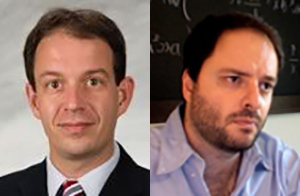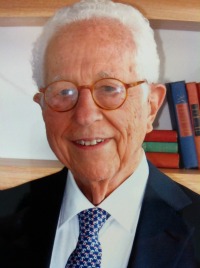It has long been a policy of corporate law1 that the informed business decisions of independent and disinterested directors are protected by the presumption of the business judgment rule.2 Courts are reluctant to second-guess decisions that are made …
In our recent paper, we provide strong empirical evidence that banks play an active role in shaping borrowers’ tax planning. Our evidence is drawn from a comprehensive analysis of the impact of debt covenant violations on corporate tax avoidance.
Covenants …
Although U.S. corporate law has traditionally been left to the states, it is widely understood that a host of federal actors can and do affect the broader rules of corporate governance in fundamental ways. How might the corporate governance landscape …
On November 29, 2016, Prime Minister Theresa May’s government issued a green paper[1] (the “Green Paper”) to canvass opinion on proposed reforms to the UK’s corporate governance framework.
A green paper is a government consultation document that …
In common law countries such as the U.S., corporate governance aims primarily to protect shareholders from managers’ self-dealing. Post-Enron reforms such as the Sarbanes-Oxley Act of 2002 and various Securities and Exchange Commission rules are examples of this shareholder-oriented approach. …
Shareholder activism remains a major force in corporate decision-making in 2016 but is increasingly operating in an environment of robust, multi-faceted shareholder engagement, particularly at large companies. The time and effort that companies and institutional investors have spent developing a …
The two most influential proxy advisory firms–Institutional Shareholder Services (ISS) and Glass, Lewis & Co. (Glass Lewis)–recently released their updated proxy voting guidelines for 2017. The key changes to the ISS and Glass Lewis policies are described below along with …
For a long time, the academic literature has largely supported the view that staggered boards — which require challengers to win at least two election cycles to gain a board majority — entrench directors and managers to the detriment of …
To read influential corporate lawyers, legal academics, and jurists, shareholders are an alarmingly myopic bunch who demand that corporate directors and managers make short-term decisions that sacrifice long-term value. The group receiving the most scolding of late is hedge fund …
Scholars and practitioners of the law generally agree that any large enterprise must be run through a legal entity such as a corporation. Entities reduce transaction costs to coordinate an enterprise’s many patrons, limit liability for shareholders, and protect a …
The 2010 Dodd-Frank Act provided shareholders of U.S. public corporations the right to vote on chief executive officers’ compensation, at least every three years. The so–called say on pay vote is advisory but was designed to curb overly generous executive …
This Article discusses the impact of the international financial crisis on Brazilian capital markets. While the banking industry was not significantly affected, leading nonfinancial corporations experienced severe financial turmoil. Two Brazilian corporations cross-listed in the United States — Sadia S.A. …
Something new and significant is taking shape. For a variety of reasons—the impact of the JOBS Act, the growing popularity of equity private placements, the appearance of new trading markets for venture capital and other non-reporting companies—a new tier of companies is growing rapidly that is composed of issuers that are not "reporting" companies, but that do have a significant number of shareholders. In terms of the size of their shareholder class, these companies overlap with public companies, but they trade in the dark—and actively. More importantly, as their number grows, it is predictable that existing and new trading venues will begin to compete to attract and capture the trading interest in these stocks. This column will call these firms "semi-public companies" to reflect their intermediate status, midway between truly private firms (such as early stage venture capital startups and family-held firms) and public companies.
In our paper, The Evolution of Shareholder Voting Rights: Separation of Ownership and Consumption, which was recently made publicly available on SSRN, we show how the ownership patterns of early business corporations shaped their peculiar governance structure. While the …
With the recent increase in activism, some on Wall Street are blaming shareholders for the short-term mentality of corporate boards.
But many of these activists represent a small subset of investors in publicly held companies. As a result, corporate boards …
 Sky Blog
Sky Blog











